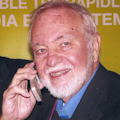Outrageous! Experience is no qualification to teach EEs.
This week (June 15-18) is the American Society for Engineering Education (ASEE) annual conference. Each year college educators get together and pontificate about their latest courses, curricula, labs and methods. It is essentially an exercise of preaching to the choir and patting themselves on the back. It is not unlike many other conferences with parochial memberships. Nevertheless, it is a good indicator of what is going on in engineering education. I usually go to this event, but not this year. I usually come away with some interesting news but the whole thing sometimes just makes me mad. The academics really live in a world of their own. So let me begin my annual rant.
First, let me say that from what I have observed over the years is that academic community generally ignores the companies that provide jobs for their graduates. It appears that most universities pay little attention to what industry what really wants and needs. Then again industry does little to provide input to the colleges about what they want. While the academics will probably listen, they will then go on and do what they want to do which essentially is the same thing they have been doing for decades. The result is that little change occurs from year to year. The EE curriculum today is essentially the same as it was a decade or so ago with minor adjustments. Yet the industry and electronics technology have moved on.
Anyway, while a few changes do take place over time, there always seems to be a lag between what is taught and the current practice and technology used in industry. Yes, the colleges still do a good job of teaching the fundamentals but seem to be a generation behind in application. Furthermore, I truly wonder if some of the fundamentals really still need to be taught. I asked a group of engineers a while back if they really used calculus in their jobs. About 90% said they never used it. As I suspected. I know you can’t not teach calculus but are there other topics in the curriculum that are like that? Taught but never used. How about phasing out some old traditional theoretical stuff in favor of something more practical? Academics will scream bloody murder about changing anything. The fundamentals are important of course. But wouldn’t it be great if they could be taught with applications in mind.
Second, it is obvious that the colleges do not value industry experience when it comes to hiring professors. The main teaching requirement is to hold a PhD. Real industrial experience is rarely required. Some positions may require professional engineering (PE) registration and that tends to mean the PE license holder has had a few years of experience.
It seems to me that professors with real world experience could teach the fundamentals in context and to explain what is really important and what is simply nice to know. Experienced teachers would be able to teach students things they ordinarily do not teach in school. They could tell their design war stories and explain that troubleshooting is just as important to know as design. I think that an MSEE with ten good years of experience is more qualified to teach than a no-experience PhD.
Instead, the academics rely solely on degrees and pass off the experience as just inadequate. They perpetuate their world this way and I have to wonder if the students suffer because of it. Students get more theory and little or no practice. I have often had the feeling that a PhD professor just did not think like a working engineer. The research orientation of a doctorate program just does not seem to fit the real world. I hope I am wrong about this. And don’t get me started on the lab education or the lack thereof.
I know some schools do a better job than others in recognizing experience and keeping the curriculum in tune with the real world. I just wish more did. I doubt that will happen as the ivory tower is, after all, still the ivory tower.
About the Author

Lou Frenzel Blog
Communications Technology
Click here to find more of Lou's articles on Electronic Design.